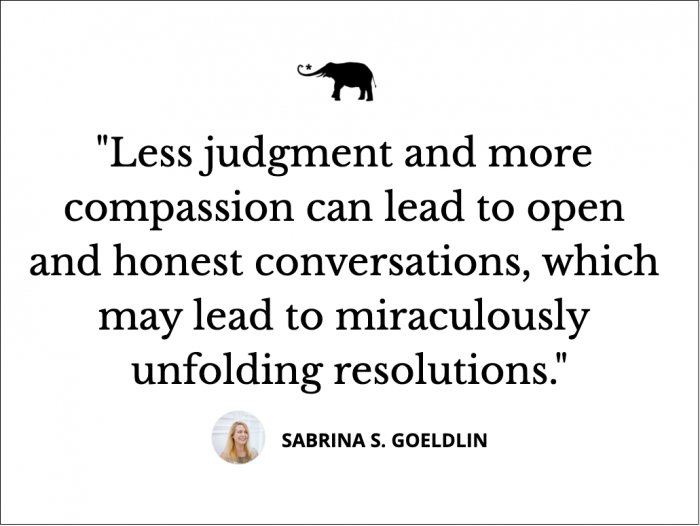Five years ago, my world turned upside down.
I was discovering the reasons behind my years of depression and feeling like there was something there that I couldn’t remember.
I remembered my childhood trauma, which my mind had cleverly pushed away over many years to try to protect me from the reality of that.
Letters went back-and-forth between me and my mother—her apologizing for not being present enough as a mother. She finally admitted to some of my recovered traumatic memories and validated them enough for me to not feel so crazy.
My truth was being validated. This gave me the strength to keep going and dive deeper into my past, recover thoughts, emotions, and details that I did not have in my mind for decades.
Puzzle pieces were falling into place when I correlated the information with behaviors and conversations I had with people later in my life.
The strange questions and comments from my abuser—they never made sense before—suddenly made a lot of sense. There were so many signs, but, because I did not remember the abuse, I was unable to put the pieces together before.
I soon realized that my mother had betrayed me, which felt like the carpet being pulled from under my feet.
I felt that my safety, health, and well-being never mattered.
I began to ask her some serious questions, which she would avoid. I understood at that moment on the phone that we would never be able to have anything to talk about anymore.
I was hoping that by ignoring her altogether, she would come around and talk to me about everything honestly. I was waiting for years without anything more than a message about what’s happening in her life or a happy birthday.
My mother, as I knew her, had officially died for me.
And so many grievances and losses followed after that.
I was grieving the loss of a mother who is still alive.
I was grieving the loss of a lover who was never mine.
I was grieving the loss of a person I once trusted who was abusive toward me.
I was also grieving the loss of my mother-in-law. She felt like the mother I’d never had before—from the moment I moved to Canada from Switzerland. With that said, I’m sure the divorce was difficult for her as well as she lost a daughter in that process.
I grieved a lot of losses that were not due to physical death.
Each loss gave me the gift of a new perspective in life.
I realized that my life experiences and how I felt about myself were a direct result of how I treated myself. How I perceived myself was the product of how I was treated as a child.
I had to relearn how to treat myself right to change my life experiences. So, I began to re-establish self-love and self-respect. I kept my promises to myself in every area of my life.
The gift of my losses showed me the way back home—to myself.
Becoming comfortable with my vulnerabilities in the process was a key aspect of healing.
Our vulnerabilities often keep us from expressing ourselves fully.
Just like my mother, I was trying to pretend that everything was okay when nothing really was okay. The very words my sister once spoke to her when we were children were: “Why are you always acting like everything is okay when nothing is okay?”
We pretend because we are not comfortable with our truths.
We worry about exposing our own truths. We believe that our truths are our vulnerabilities that will be used against us. They have been used against us in the past, or we have been gaslighted over it.
We are often affected by not having our truths validated by others. They could have validated them but wouldn’t because that means that they have to admit to their faults.
I was as much of a victim of that as I was the perpetrator.
What is it with humans always wanting to be more dominant than others? Why are humans so interested in always having the upper hand? Why are humans so narcissistic?
The reason is in our history, our family dynamics, and our inability to work on ourselves—something we should have been taught in school, or our parents should have told us how to do it.
Working on ourselves is key in changing our world, on a small scale and at large.
We are so judgmental about others and their situations, their perspectives, their ideas, and their way of living and being.
I want to challenge you to tell yourself every time you feel triggered and go into judgment: “It is okay for others to think differently than me.”
It’s okay.
It is okay to admit to our faults. It is okay to be wrong. It is okay to not have it all sorted out. It is okay to not have all trauma memories back in order. It is okay to not love your mother anymore. It is okay to not be happy only being a mother. It is okay to show your anger over an injustice. It is okay not to be perfect.
It is okay not to be okay.
It is okay to admit that nothing is fine, and it is okay to talk about it.
Less judgment and more compassion can lead to open and honest conversations, which may lead to miraculously unfolding resolutions.

 Share on bsky
Share on bsky





Read 2 comments and reply